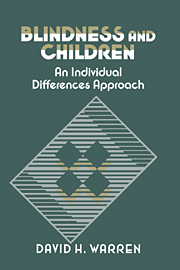Book contents
- Frontmatter
- Contents
- Preface
- Introduction
- Part I Interaction with the physical world
- Part II The acquisition of cognitive skills
- 5 Language, concept formation, and classification
- 6 Executive functions: memory, attention, and cognitive strategies
- 7 Cognitive style, creativity, and intelligence
- Part III Adapting to the social world
- Part IV Summary
- Conclusion
- References
- Author index
- Subject index
7 - Cognitive style, creativity, and intelligence
from Part II - The acquisition of cognitive skills
Published online by Cambridge University Press: 02 December 2009
- Frontmatter
- Contents
- Preface
- Introduction
- Part I Interaction with the physical world
- Part II The acquisition of cognitive skills
- 5 Language, concept formation, and classification
- 6 Executive functions: memory, attention, and cognitive strategies
- 7 Cognitive style, creativity, and intelligence
- Part III Adapting to the social world
- Part IV Summary
- Conclusion
- References
- Author index
- Subject index
Summary
Cognitive style, creativity, and intelligence are not properly cognitive executive functions, but they are nevertheless important to consider for a full picture of the cognitive capabilities and functioning of children with visual impairments. In each area there is important evidence of individual differences.
Cognitive style
The term cognitive style refers to the fact that children differ in their approaches to cognitive tasks. Although there are different ways of defining cognitive style, one of the most useful is the global–articulated dimension. An articulated style refers to the ability to impose structure on an inherently unstructured situation, or to recognize structure that exists. In contrast, global style refers to the tendency to deal with events in a diffuse and unstructured manner. The dimension thus has to do with cognitive organization.
This aspect of cognitive functioning is of interest in children with visual impairments because of the role that vision is hypothesized to play in the developing cognitive abilities of sighted children. In studies of sighted children, Witkin and his colleagues have generally found a developmental progression from global to articulated cognitive style; that is, with increasing age children become more able to differentiate structure within a field and more able to impose structure when little exists (Witkin, Birnbaum, Lomonaco, Lehr, & Herman, 1968). Vision is thought to play a major role not only in the developing articulation of visual perception itself, but also as an aid to articulation of experience gained through other sensory modalities. Witkin et al. thus hypothesized that congenitally blind children would show individual consistencies of cognitive style, but that in general they would be relatively more global in their cognitive functioning than sighted children of comparable age.
- Type
- Chapter
- Information
- Blindness and ChildrenAn Individual Differences Approach, pp. 181 - 204Publisher: Cambridge University PressPrint publication year: 1994



